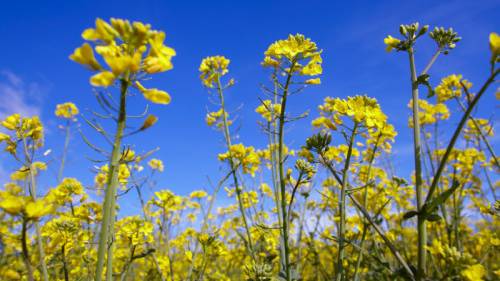Study: Pesticide Use High In Bangladesh
An overwhelming 86.7 percent of the farmers use medium to high chemical fertilizers like urea, triple super phosphate (TSP), Muriate of Potash (MP), Zinc, and Sulpur for cultivation of vegetables, according to a recent study.
The study revealed that farmers in the study areas mainly used urea, TSP, MP, Zinc and Sulphur for vegetable cultivation. All the vegetable farmers (100 percent) used urea while 98.7 percent and 96 percent used TSP and MP respectively.
National Food Policy Capacity Strengthening Programme (NFPCSP) with the support of the European Union and USAID conducted the study titled ‘Effects of Using Chemicals and Hormones for Cultivation and Marketing of Vegetables and Banana.’
Principal Investigator of the study Prof Mohammad Hossain Bhuiyan and Prof M Sekender Ali, both of the Department of Agricultural Extension and Information System at Sher-e-Bangla Agricultural University, and Mohammad Mainuddin Molla of Bangladesh Agricultural Research Institute (BARI) jointly carried out the study with the support from NFPCSP.
The study was conducted to find out the effects of using chemicals and hormones in cultivation and marketing of vegetables and banana based on the perception of farmers, wholesalers and consumers, and chemical analysis at the BARI laboratories.
Data were collected from 150 purposively selected vegetable farmers of Narsingdi, Gazipur and Tangail districts. Data were also collected from the vegetable wholesalers nearer to the selected farmers’ villages and purposively selected 100 consumers of Dhaka city during the period from January to June 2008.
The study reveals that only 16 percent and 26.7 percent of the farmers used Zinc and Sulphur respectively for vegetable cultivation. Most (80 percent) of them were high users of urea compared to 3.3 percent and 16.7 percent low and medium users respectively.
About two-thirds (64.7 percent) of the farmers were high users of TSP compared to 5.3 percent and 28.7 percent being low and medium users. Only 1.3 percent of the farmers used no TSP. Majority (56.7 percent) of the farmers were high users of MP while 12.7 percent and 26.7 percent were low and medium users.
The study showed that only 4.0 percent of the farmers used no MP. In case of Zinc, an overwhelming 84 percent of the farmers were non-users compared to 9.3 percent, 5.3 percent and 1.3 percent low, medium and high users.
About three-fourths (73.3 percent) of the farmers did not use any Sulphur while 14.7 percent, 9.3 percent and 2.7 percent were low, medium and high users.
The study observed that for insect control in the vegetable fields, 72 percent farmers used Carbofuran insecticide, 67 percent used Cypermethrin, 52 percent used Dimethoate, 36 percent used Fenitrothion, and 26 percent used Lamda Cyhalothrin insecticide.
Nearly half (47.3 percent) of the vegetable farmers were medium users (used at times of normal attack) of insecticides for insect control in vegetable fields and 39.3 percent used over doses.
For disease control in vegetable fields, farmers mainly used fungicides. Most (62 percent) of the farmers used Dimathomorph with Mancozeb fungicides, 54 percent used Metalaxyl M with Mancozeb, 47 percent used Mancozeb and 31 percent used Carbendazim. Majority (38 percent) of the vegetable farmers were medium users of fungicides for diseases control while 19.4 percent, 6.6 percent and 36 percent being no, low and high users respectively.
The overall findings of the study revealed that an overwhelming 89.3 percent of the farmers used medium to high chemical pesticides for vegetable cultivation.
Farmers in the study areas did not use any chemicals and hormones for vegetable harvesting, storing, transporting and marketing. But they used Litosen, Okozim, Alga gold, etc. as Plant Growth Regulators (PGR) for vegetable cultivation.
Majority (58 percent) of the vegetable farmers were low users of PGR compared to 40.6 percent non-users and only 1.4 percent medium to high users.
The study mentioned that 71.3 percent of vegetable farmers perceived medium to high effect of chemical inputs in cultivation on human health. Majority of the consumers (71-76 percent) perceived that the effect of excess use of chemical fertilizers and pesticides in vegetable increase human diseases.
About 22-31 percent of the consumers perceived that using PGR in vegetable increase human disease and food toxicity, degrade food taste and food value, and decrease crop shelf-life. About two-thirds of the consumers had no perception on this aspect.
Based on group discussion of training-cum-workshop with the farmers, it was found that the total effect score of excess use of chemical fertilizers in vegetable cultivation, degraded food taste ranked first followed by degraded food value, increased food toxicity, increased human diseases and creation of new human diseases.
(Source: nation.ittefaq.com)






